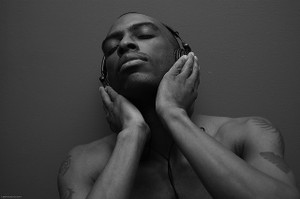Music can evoke deep emotions, can get our bodies moving and can unearth memories buried from the long ago past. Music is powerful as communication and expression and it is appreciated and can be made by people from any and all backgrounds, without any need for prior skill or training.
Given the power and influence of music on our minds, bodies and souls, it’s hardly surprising that using music as therapy can have some significant benefits to those living with a wide array of conditions/problems, from substance abuse or chronic pain, to Alzheimer’s or developmental delays and to many other types of problems.
Music therapy involves treatment with music to help people with a wide array of problems improve emotional or physical health, and well being or social functioning. Music therapy can be beneficial for anyone, but since the primary communication between music therapist and client is musical in nature, it can be especially useful for people who have difficulty expressing themselves through written or spoken communication (for any number of reasons).1
Do You Have to Have Musical Skills to Benefit from Musical Therapy?
Tone deaf? Doesn’t matter!
Music therapy is not about producing beautiful complicated works of music and no skill set is required to get started benefiting from music therapy. You may use your voice or very easy to manipulate instruments such as drums or gongs to make music, often accompanied by your music therapist, or you may simply listen to works of music designed to open up your feelings or to control your stress or anxiety.
Whatever your music therapist has planned for you, it will never require more musical skill than you’ve got.
What Happens in a Music Therapy Session?
The activities of any given music therapy session will vary based on the needs of the individual client, but some typical types of activities include:
- Improvisational activities – These types of activities use voice or easy to play instruments to produce improvised music, which is often accompanied or supported musically by the therapist. In some cases, clients are asked to make music that reflects the way they feel or that describes situations or challenges that they deal with. This type of musical improvisation helps clients to communicate feelings that may be difficult to put into words and to gain a better self understanding of their feelings. Making improvised music together is also an effective way to develop a trusting and open relationship between client and therapist.
- Playing Structured Music – Learning to sing or play existing musical numbers, alone or in a group, can be an effective therapeutic tool for people with developmental delays who need to improve their fine or gross motor skills. Very elderly clients who play or sing together in a group can improve their awareness of reality and family groups in conflict who play together can work on rebuilding open communication.
- Composing Songs – In some cases the music therapist will work with a client or group of clients to compose a piece of music. Often the client will come up with the melody and or words and the therapist will provide more technical assistance, such as arranging it in musical notation. Musical composition is a helpful tool of self expression for hospitalized or dying children or people struggling with eating disorders or addiction.
- Listening to Music – Listening to music can provide anxiety, stress and even pain relief to people with cancer and other diseases and can help people with psychological conditions access thoughts and feelings that need to be discussed.2
Who Can Benefit from Music Therapy?
Music therapy benefits people of all ages, from infants to the very elderly. Some common reasons for getting music therapy include:
- Substance abuse
- Eating disorders
- Psychiatric problems
- Sensory impairments
- Physical delays
- Communication problems
- Developmental delays
- Learning disabilities
- Behavior problems
- Alzheimer’s and dementia
- Brain injury
- Chronic pain
- Mothers in labor
- References
Page last updated Aug 18, 2011


